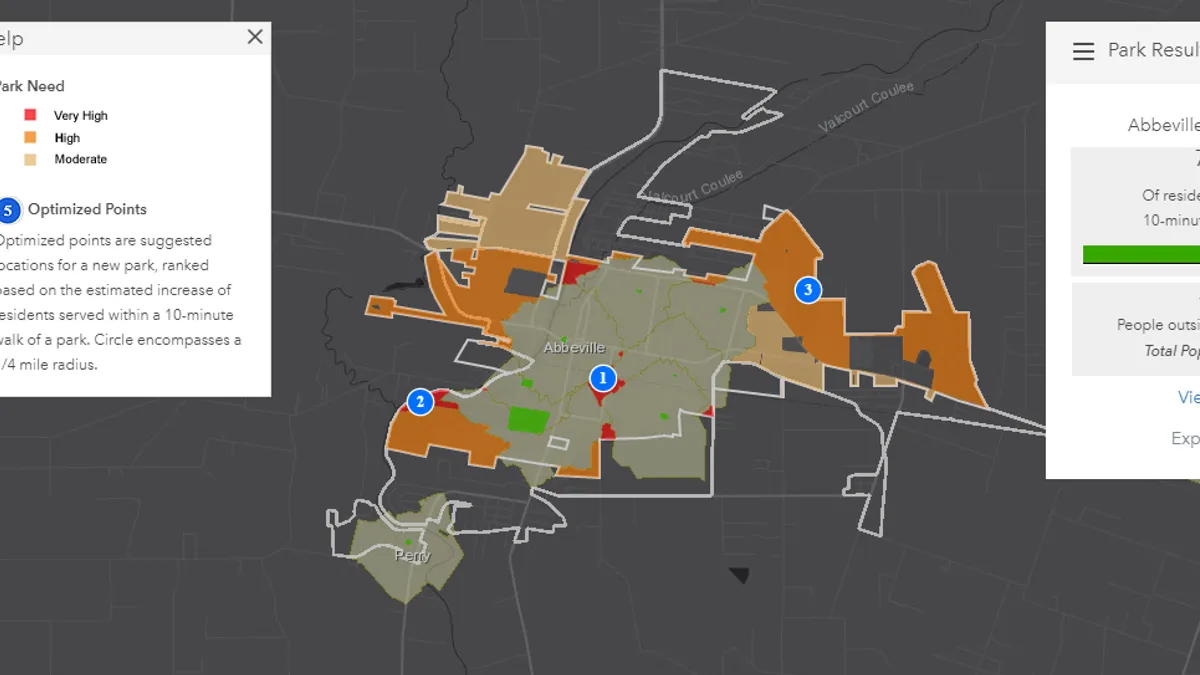Dive Brief:
- A new tool allows city residents and urban planners to measure who does and does not have access to a park within a 10-minute walk, and helps guide improvements to existing parkland.
- The Trust for Public Land collaborated with mapping software Esri on ParkServe, which includes information for 14,000 cities with a combined population of 260 million people.
- The tool is part of The Trust for Public Land’s movement to put a park or natural area within a 10-minute walk of every American, an initiative endorsed by more than 200 mayors.
Dive Insight:
As cities battle with reducing emissions and becoming more environmentally friendly, adding parks and open space help attain those goals. A study by the U.S. Department of Agriculture (USDA) Forest Service found the need for urban forests will continue to grow as cities use more land.
And parallel to that, this software will help cities and urban planners think about livability, something already underway in Louisville, KY, where they are studying the links between human health and urban green space. The Trust for Public Land’s movement also focuses on equity of access to parkland and aims to reduce the number of people who cannot walk to it in 10 minutes or less.
"Today, more than 100 million people in communities across America don’t have a park within a 10-minute walk of home — and that’s 100 million too many," Diane Regas, President and CEO of The Trust for Public Land, said in a statement.
This new software also enables residents to engage more with their city government, a crucial connection as leaders look to innovate and introduce new features. Using this tool, residents can be provided with information about parks they can then use to advocate for more investments.
And users can also create virtual parks to see how that would affect equity of access, another way to engage citizens electronically with their government.
"Through this online tool, citizens and communities quickly see where parks are needed," Jack Dangermond, Esri founder and president said in a statement. "I believe access to nature is a human right and not a privilege."












